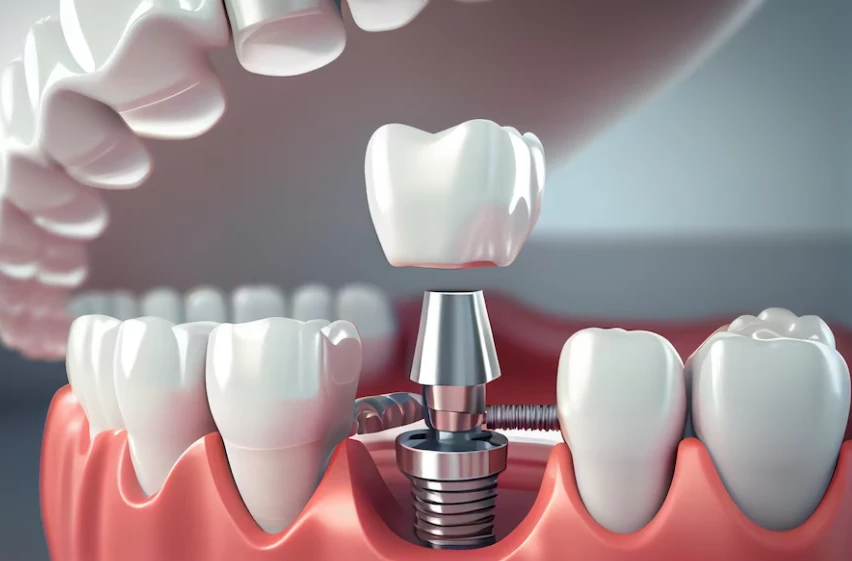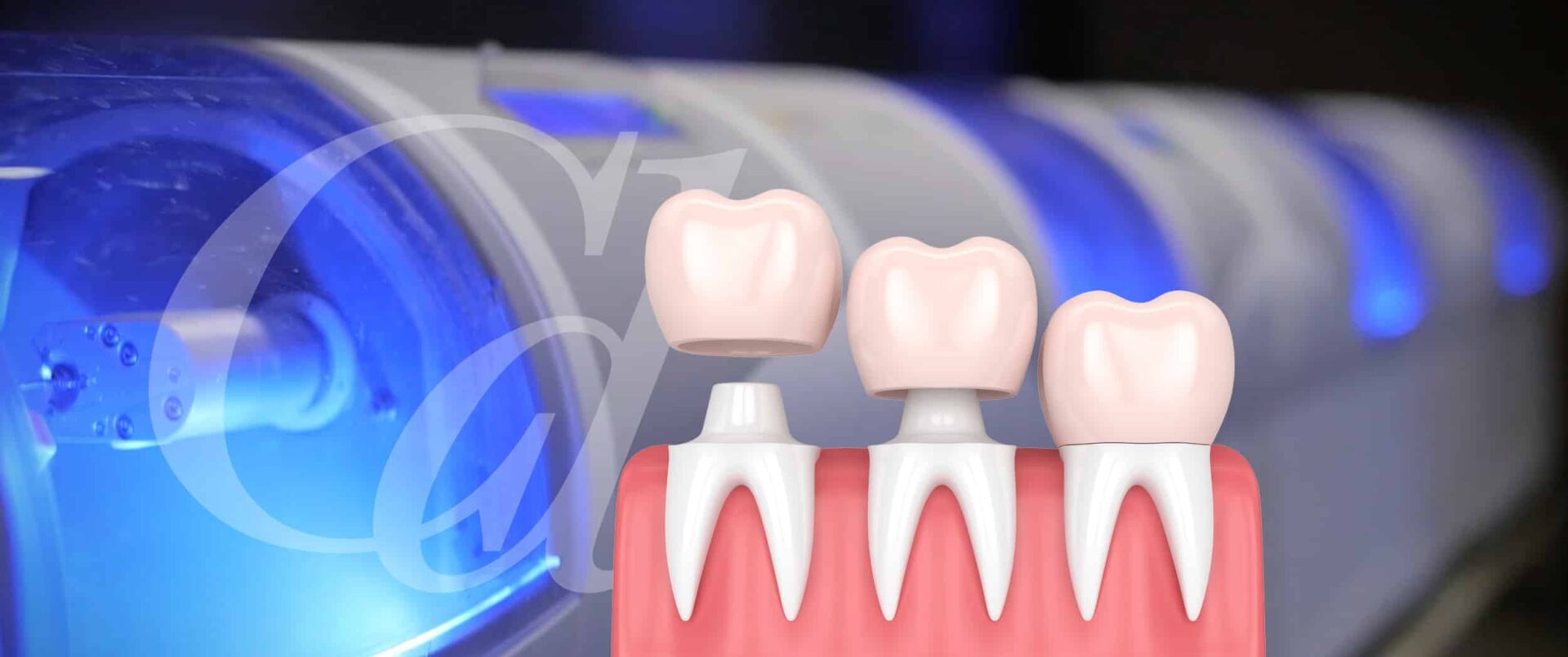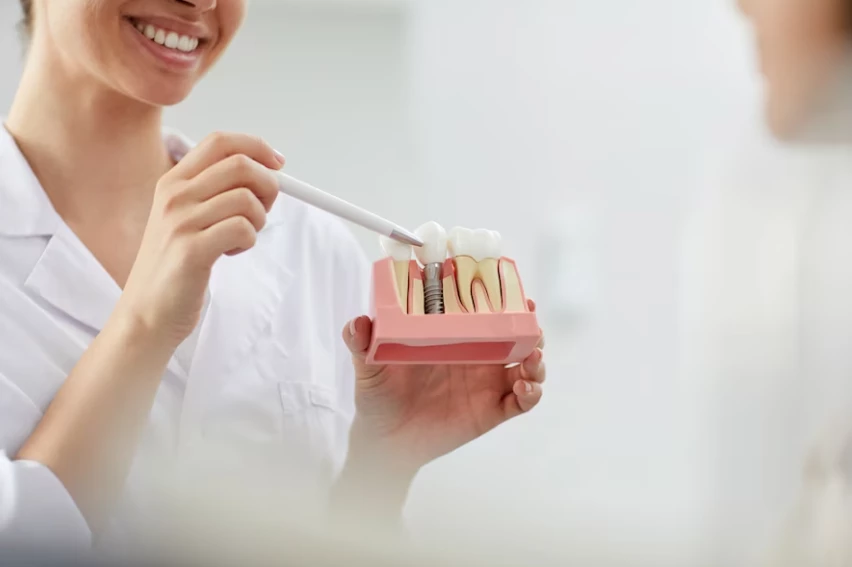Getting dental implants? There’s more to the process than just replacing missing teeth. Your immune system plays a big role in how well the implants heal and last. If your body reacts poorly, it can lead to complications like implant failure or prolonged healing. Factors like overall health, diet, and even stress can influence how your immune system responds.
The good news? There are ways to support your body and improve your chances of long-term success. Whether you’re considering implants or already have them, understanding this connection can help you make smarter decisions for your health.
How Do Dental Implants Affect The Immune System?
When it comes to dental implants, the focus is usually on their ability to replace missing teeth and restore functionality. But the process of getting a dental implant is more than just installing a metal post in your jawbone; it’s a procedure that interacts with your body’s immune system in several ways.
Here’s how dental implants affect your immune system:
- Biocompatibility: Dental implants are typically made from titanium, a biocompatible material. This means that titanium is highly compatible with the human body and is unlikely to trigger an immune response. The immune system generally recognizes the titanium implant as a foreign object, but because it is non-reactive, it doesn’t mount an immune attack. Instead, the body forms a strong bond with the titanium during a process known as osseointegration. This is where the bone actually fuses with the implant, a critical step for implant success.
- Inflammatory Response: Like any surgical procedure, placing a dental implant causes a temporary inflammatory response. The immune system sends white blood cells to the site of the surgery to heal tissue and prevent infection. While this is a normal response, it’s essential to manage the inflammation. Too much inflammation can slow healing, leading to complications like infection or implant failure. That’s why proper aftercare is crucial in the days and weeks following the procedure.
- Bone Regeneration: Implants stimulate bone growth and regeneration in the jaw. The implant’s surface is specially designed to encourage bone cells to adhere, and this interaction with the body’s natural healing processes relies on a healthy immune response. Without an adequate immune system to manage inflammation and repair tissue, the bone may not integrate with the implant as effectively.
While dental implants themselves don’t necessarily “impact” the immune system in a harmful way, they do require a functioning immune system to ensure the body can heal effectively and integrate the implant securely.
Can Your Immune System Reject Dental Implants?
The idea of your immune system rejecting dental implants is a common concern, but the good news is that it’s highly unlikely. Titanium implants are known for their biocompatibility, and rejection of the implant itself is rare. However, there are certain factors that could affect the success of your implant.
- Infection and Inflammation: If your immune system is compromised or not functioning properly, it may struggle to fight off infections, which can increase the risk of implant failure. Infections can cause gum disease (peri-implantitis) or bone loss around the implant, making the implant unstable. This could lead to implant failure, but it’s not an immune rejection per se—it’s more about the body being unable to adequately fight infection.
- Allergic Reactions: While extremely rare, some people may have an allergy or sensitivity to titanium, the material commonly used in dental implants. This can result in localized inflammation, pain, or discomfort around the implant site. However, titanium is one of the most well-tolerated materials in medical devices, and true allergic reactions are exceedingly uncommon.
- Pre-existing Autoimmune Disorders: People with autoimmune disorders, such as rheumatoid arthritis or lupus, may experience a less efficient immune response. In some cases, this could affect the body’s ability to integrate the implant or fight off infections. For example, those with autoimmune conditions might have delayed healing or increased risk of infection at the implant site, but rejection of the implant itself is still rare.
While it’s important to be aware of these potential risks, it’s worth noting that dental implants are generally very safe, and the incidence of actual rejection is extremely low.
Are Dental Implants Safe For People With Compromised Immune Systems?
If you have a compromised immune system, such as from undergoing cancer treatment, taking immunosuppressive medications, or suffering from an autoimmune disorder, you may be wondering whether dental implants are a safe option for you.
Here’s what you should know:
- Consultation is Key: The most important step for anyone with a compromised immune system is to have an in-depth conversation with your dentist and any relevant healthcare providers. They’ll evaluate your specific situation, consider any underlying health issues, and help determine whether dental implants are a viable option. If your immune system is not functioning optimally, your dentist may recommend extra precautions or alternative treatments.
- Increased Risk of Infection: A compromised immune system can make it harder for your body to fight off infections. As mentioned earlier, infection around the implant site is one of the most significant risks following dental implant surgery. In such cases, your dentist may recommend preemptive antibiotic therapy to reduce the risk of infection or may advise a slower, more gradual healing process with additional check-ups.
- Slower Healing Time: When the immune system is weakened, the body may not heal as quickly as it normally would. This can mean a longer recovery period following the implant procedure. Your dentist will monitor you closely to ensure that healing is progressing as expected and will provide additional instructions to support your recovery.
- Ongoing Maintenance: After the dental implant is placed, people with weakened immune systems will need to be more diligent about oral hygiene and aftercare. Your dentist may schedule more frequent check-ups and cleanings to ensure that the implant site is healing properly and that there are no signs of infection or inflammation.
While having a compromised immune system can increase the risks associated with dental implants, many patients with controlled conditions can safely undergo implant surgery with proper preparation, monitoring, and post-surgical care. It’s always best to consult with your healthcare team to ensure that dental implants are a safe option for you.
What Role Does The Immune System Play In The Healing Process Of Dental Implants?
The immune system plays a vital role in the healing process after dental implants are placed. The implant surgery itself triggers a natural immune response that helps the body repair the area and integrate the implant with the jawbone.
Here’s a breakdown of the role the immune system plays in the healing process:
- Inflammation and Healing: In the first stages of healing, the immune system sends white blood cells to the implant site to clear away any bacteria or debris. This inflammatory response is necessary to kick-start the healing process and ensure that the tissue is clean and free of infection.
- Osseointegration: For a dental implant to be successful, it must fuse with the jawbone in a process known as osseointegration. This is where the body’s immune cells help remodel the bone to integrate the implant securely. The immune system aids in producing new bone cells around the implant to create a stable foundation.
- Protection Against Infection: The immune system is on high alert during the healing process to prevent infection. It produces antibodies and immune cells that fight off bacteria that could potentially cause infections in the area. Keeping the implant site clean and following aftercare instructions is crucial to supporting the immune system’s efforts.
- Tissue Regeneration: Once the initial inflammation subsides, the immune system helps with tissue regeneration, promoting the growth of healthy gum tissue around the implant. This is essential for both the aesthetic appearance of the implant and the long-term health of the surrounding gums and bone.
While the immune system is incredibly effective at managing healing and integration, it’s important to provide support through proper nutrition, oral hygiene, and medical supervision to ensure that the process is as smooth as possible.
Dental implants are a great option for restoring your smile, and understanding the role your immune system plays in their success is key to achieving the best results. From helping with osseointegration to protecting against infection, your immune system is an integral player in the healing process of dental implants.
If you have a compromised immune system or are concerned about the risks, it’s crucial to have an open conversation with your dentist about the best way to move forward. With proper care, consideration, and attention to your health, dental implants can be a successful and life-changing solution.
By recognizing the connection between your immune system and dental implants, you can ensure a smoother, safer, and more comfortable experience on your journey to a healthier, more confident smile.
Restore Your Smile with Confidence! Let Cascade Dental Help!
At Cascade Dental, we understand the intricate connection between your dental health and immune system. Whether you’re considering dental implants or you’re already on your journey to a restored smile, our experienced team is here to guide you every step of the way. We’re committed to ensuring that your implant process is smooth, safe, and effective—no matter your immune health.
Don’t let concerns about your immune system stop you from achieving the smile you deserve. Reach out to us today for a personalized consultation, and let’s discuss how we can make your dental implant experience a success!
Contact us now to learn more about how we can help you with a tailored treatment plan, designed with your health and well-being in mind!



